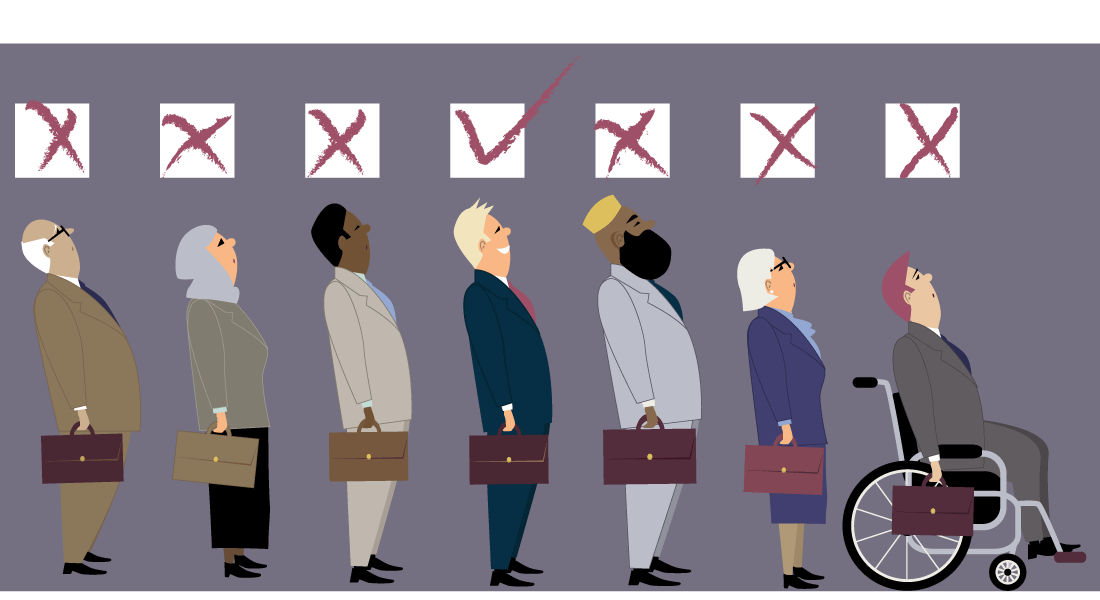Breaking the Barriers: A Guide to Fighting Pay Discrimination
The gender pay gap persists as one of the most entrenched forms of workplace inequality in America. Despite more than six decades since the Equal Pay Act became law, women continue earning less than men for substantially similar work across virtually every industry and job level. This discrimination doesn’t just harm individual workers—it undermines families, weakens economic growth, and perpetuates systemic inequality that affects generations.
Understanding your legal rights and the available remedies represents the first step toward achieving workplace equality. The legal framework exists to combat sex discrimination in pay, but it requires informed advocacy and persistent action to create meaningful change. Recent high-profile settlements demonstrate that violations carry real consequences, while successful enforcement creates precedents that benefit all workers.
Whether you’re experiencing pay disparities, witnessing workplace discrimination, or seeking to understand your legal options, this comprehensive guide provides the essential information needed to navigate the complex landscape of gender pay discrimination law.
The Historical Foundation of Equal Pay Laws
The struggle for equal pay has deep roots in American labor history. Before 1963, employers could openly pay women less than men for identical work, often justifying these disparities with outdated social attitudes about women’s roles in the workforce. Women were systematically excluded from higher-paying positions or channeled into “women’s work” that commanded lower wages regardless of skill requirements.
The Equal Pay Act of 1963 emerged from years of advocacy by labor unions, women’s rights organizations, and progressive legislators who recognized that wage discrimination harmed not only individual workers but the broader economy. The law established the fundamental principle that employers must pay equal wages to employees of opposite sexes for equal work requiring equal skill, effort, and responsibility under similar working conditions.
This groundbreaking legislation was later strengthened by Title VII of the Civil Rights Act of 1964, which prohibited employment discrimination based on sex, race, color, religion, and national origin. Together, these laws created a comprehensive framework for addressing workplace discrimination, though enforcement and interpretation have evolved significantly over the decades.
The historical context reveals that gender pay discrimination has never been merely about individual cases of unfair treatment. It represents a systematic undervaluation of women’s work that has persisted across generations, creating economic disadvantages that compound over time and affect entire families and communities.
Understanding Today’s Legal Framework
The current legal landscape for addressing gender pay discrimination involves multiple federal laws and enforcement mechanisms that work together to protect workers’ rights. The Equal Pay Act requires employers to provide equal pay for equal work, with limited exceptions for seniority systems, merit systems, systems measuring earnings by quantity or quality of production, or differentials based on factors other than sex.
Title VII of the Civil Rights Act provides broader protection against sex discrimination in employment, covering not only pay but also hiring, promotion, and other terms and conditions of employment. The Equal Employment Opportunity Commission (EEOC) enforces both laws, investigating complaints and pursuing litigation when necessary to protect workers’ rights.
The legal framework has evolved through decades of court decisions and EEOC enforcement actions that have clarified employers’ obligations and workers’ rights. Courts have recognized that equal pay violations can occur through various mechanisms, from direct wage disparities to more subtle practices that systematically undervalue women’s contributions.
Recent EEOC cases demonstrate the continued relevance and strength of these legal protections. These enforcement actions show that discrimination persists across industries and job levels, but also that the legal system provides meaningful remedies when violations occur.
Recognizing Common Forms of Pay Discrimination
Gender pay discrimination manifests in various forms, some more obvious than others. Direct wage disparities for identical positions represent the most straightforward violations, but discrimination often operates through more subtle mechanisms that can be equally harmful to workers’ economic interests.
Job segregation remains a significant issue, where employers steer women and men into different positions with artificially created distinctions that justify pay differences. This practice violates equal pay principles when the positions require substantially similar skill, effort, and responsibility, regardless of different job titles or superficial distinctions.
Pay transparency restrictions create another barrier to identifying discrimination. When employers prohibit employees from discussing compensation, workers cannot easily determine whether pay disparities exist. The EEOC has successfully challenged such policies as potential retaliation against protected activity, recognizing that transparency helps uncover discrimination.
Workplace discrimination also includes denying advancement opportunities that would lead to higher compensation, providing inferior benefits packages, and subjecting women to different performance standards or evaluation criteria that affect pay outcomes. These practices can be just as damaging as direct wage disparities and may be easier to conceal from affected workers.
The use of prior salary history to set new employee compensation perpetuates historical discrimination by carrying forward the effects of previous pay disparities. Many states have now banned this practice, recognizing that it systematically disadvantages women who have faced discrimination in previous positions.
The Far-Reaching Impact of Pay Discrimination
The consequences of gender pay discrimination extend far beyond immediate wage losses, creating ripple effects that compound over time and affect multiple aspects of workers’ lives. For individual workers, lower pay accumulates throughout their careers, affecting retirement savings, Social Security benefits, and overall lifetime earnings potential.
Research demonstrates that pay disparities early in careers create widening gaps that persist throughout a worker’s professional life. A woman who starts her career earning less than her male colleagues may never fully close that gap, even with subsequent raises and promotions that maintain the percentage differential.
Families suffer when wage discrimination reduces household income, limiting opportunities for education, healthcare, and economic security. These effects are particularly pronounced for single-parent households, where one person’s earnings support the entire family unit. The economic impact extends to children’s opportunities and life outcomes.
The psychological impact cannot be overlooked. Workers who discover they earn less than colleagues for equal work often experience decreased job satisfaction, reduced motivation, and stress that affects both work performance and personal well-being. This emotional toll represents another form of harm that legal remedies must address.
From an organizational perspective, pay discrimination creates legal liability, damages employee morale, and may result in talent loss as skilled workers seek fairer compensation elsewhere. Companies that fail to address these issues face increased turnover costs, potential reputational damage, and the risk of costly litigation.
Legislative and Policy Solutions
Strengthening existing legal protections requires both enhanced enforcement of current laws and new legislative approaches that address emerging challenges in the modern workplace. Pay transparency laws, already enacted in several states, require employers to disclose salary ranges in job postings and prohibit retaliation against employees who discuss compensation.
The Paycheck Fairness Act, introduced in multiple Congressional sessions, would strengthen the Equal Pay Act by limiting the defenses employers can use to justify pay disparities and allowing class action lawsuits for equal pay violations. While not yet enacted at the federal level, similar measures in various states demonstrate growing momentum for stronger protections.
Enhanced penalties for violations could improve compliance rates significantly. Currently, many employers view potential Equal Pay Act penalties as manageable business costs rather than meaningful deterrents. Increasing financial consequences and expanding available remedies would encourage proactive compliance rather than reactive responses to complaints.
State-level initiatives continue to drive innovation in pay equity enforcement. Some states have implemented mandatory pay audits, public reporting requirements, or enhanced penalties that go beyond federal minimums. These varied approaches provide laboratories for testing different policy solutions.
Employer Best Practices and Legal Obligations
Proactive employers can implement comprehensive pay equity programs that go beyond minimum legal requirements and create competitive advantages in talent recruitment and retention. Regular compensation audits help identify and correct disparities before they become legal violations or employee relations problems.
Establishing clear, objective criteria for compensation decisions reduces the likelihood of unconscious bias affecting pay outcomes. Job evaluation systems that consistently assess positions based on skill, effort, responsibility, and working conditions provide defensible foundations for compensation structures.
Training managers and HR professionals on equal pay requirements ensures that compensation decisions comply with legal standards while promoting fairness and consistency. This education should cover both obvious discrimination and subtle practices that may create disparities over time.
Pay transparency initiatives, even where not legally required, can demonstrate commitment to fair compensation and help identify potential problems early. When employees understand how pay decisions are made, they are more likely to trust the process and less likely to suspect discrimination.
Regular review of compensation practices helps employers stay ahead of legal requirements and industry best practices. This includes examining promotion patterns, performance evaluation systems, and benefits allocation to ensure gender neutrality in all aspects of compensation.
Successful Enforcement Examples and High-Profile Settlements
Recent enforcement actions and settlements demonstrate both the prevalence of gender pay discrimination and the effectiveness of legal remedies in addressing violations. These cases provide important precedents and show the real-world impact of successful advocacy.
Google’s $28 Million Settlement: The tech giant settled a California equal pay lawsuit after a leaked internal spreadsheet revealed systematic pay disparities affecting Hispanic, Latinx, Indigenous, Native American, American Indian, Native Hawaiian, Pacific Islander, and Alaska Native employees. The settlement required comprehensive pay equity reviews and policy changes beyond the monetary relief.
Activision Blizzard’s $54.8 Million Resolution: The gaming company agreed to pay approximately $54.8 million to resolve claims of unequal pay and sex-based discrimination affecting female employees in California. The settlement included requirements for independent consultants to review compensation policies and ongoing diversity efforts.
Disney’s $43.25 Million Agreement: The entertainment company reached a settlement in a gender pay discrimination class action, committing to conduct pay equity analyses and retain consultants for training. The case highlighted how enterprise-wide compensation policies can perpetuate historical discrimination.
U.S. Soccer Federation’s $24 Million Commitment: Following years of litigation, the USSF settled with the United States Women’s National Team for $24 million, committing to equal pay for both men’s and women’s national teams going forward.
Mastercard’s $26 Million Settlement: The financial services company agreed to pay $26 million in a proposed class action while committing to conduct annual pay equity audits and evaluate its career ecosystem for bias.
These settlements share common elements: clear evidence of systematic pay disparities, employer commitments to ongoing monitoring and improvement, and comprehensive remedies that address both individual harm and systemic problems. They demonstrate that violations carry real financial consequences while creating precedents that benefit broader groups of workers.
The Intersectional Nature of Pay Discrimination
Gender pay discrimination intersects with other forms of bias, creating compounded disadvantages for women of color, older women, women with disabilities, and other groups facing multiple forms of discrimination. These intersectional effects require sophisticated legal strategies that address all contributing factors to achieve meaningful remedies.
Research consistently shows that Black women, Latina women, Native American women, and women from other minority groups face larger pay gaps than white women. These disparities reflect both gender discrimination and racial discrimination, requiring legal approaches that address both sources of bias simultaneously.
Age discrimination combines with sex discrimination to create particular challenges for older women workers.
If you have experienced pay discrimination or have knowledge of unfair pay practices in your workplace, it is crucial to consult a reputable attorney with proven expertise in employment law. Firms like Helmer Friedman LLP offer skilled legal advocacy to help address these injustices. With over 20 years of experience, a strong history of case victories, and a commitment to personalized client support, Helmer Friedman LLP can guide you through the legal process and work to secure the justice and compensation you deserve. Don’t hesitate to reach out for a confidential consultation to discuss your situation.









